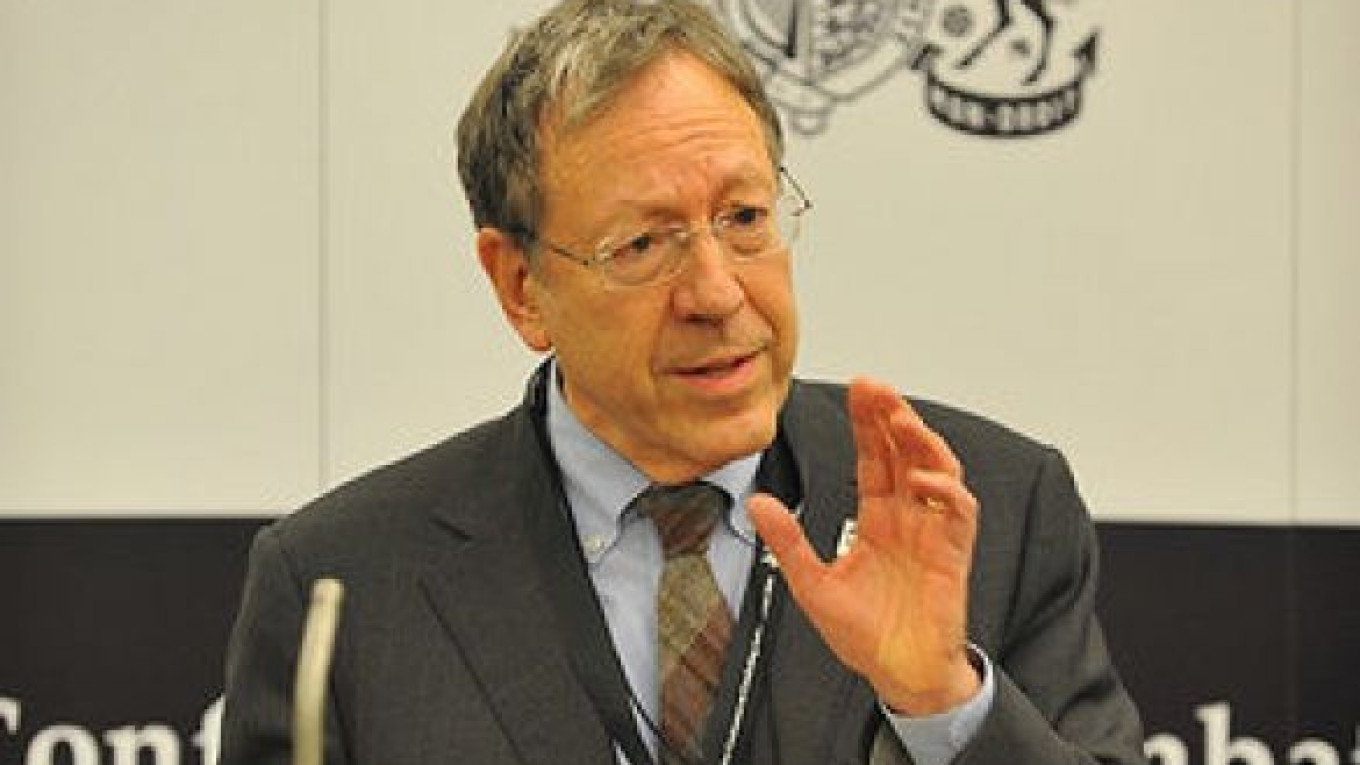Lawmakers from 21 countries have formed a commission to promote sanctions against Russian officials implicated in the prison death of whistle-blowing lawyer Sergei Magnitsky in 2009.
The Justice for Sergei Magnitsky commission, which was holding its inaugural meeting at the European Parliament in Brussels on Wednesday, includes lawmakers from Canada, Britain, France, Germany, Spain, Poland and 15 other countries.
It is headed by Irwin Cotler, a former Canadian justice minister and attorney general who served as lawyer to prominent prisoners of conscience such as Nelson Mandela in South Africa and Natan Sharansky in the Soviet Union, according to its website.
"This will be the inaugural launch of a global, coordinated campaign to impose Magnitsky sanctions internationally," Cotler said in an e-mailed statement.
"The Magnitsky case has come to represent all that's wrong with Putin's Russia," he added. "By forming the inter-parliamentary group on the Magnitsky case, we hope to give expression to the best initiatives from parliaments around the world and implement them across the countries represented by parliamentarians participating in this group."
The group timed its first meeting with the fourth anniversary of Magnitsky's death on Nov. 16, 2009, said a spokesman for Hermitage Capital, once Russia's largest foreign investment fund and the employer of Magnitsky at the time of his death.
Magnitsky was imprisoned in 2008 after he accused officials, including those who arrested him, of embezzling millions of dollars from the government in a tax scheme.
His death in pre-trial detention raised an international outcry, leading the U.S. last year to pass the Magnitsky Act blacklisting Russian officials implicated of human rights violations.
An investigation by the Kremlin human rights council found that Magnitsky's death followed a severe beating by prison guards, although a criminal investigation into the case was closed over lack of evidence earlier this year.
Also this year, Magnitsky was convicted of tax evasion in the first posthumous trial in Russian history.
A Message from The Moscow Times:
Dear readers,
We are facing unprecedented challenges. Russia's Prosecutor General's Office has designated The Moscow Times as an "undesirable" organization, criminalizing our work and putting our staff at risk of prosecution. This follows our earlier unjust labeling as a "foreign agent."
These actions are direct attempts to silence independent journalism in Russia. The authorities claim our work "discredits the decisions of the Russian leadership." We see things differently: we strive to provide accurate, unbiased reporting on Russia.
We, the journalists of The Moscow Times, refuse to be silenced. But to continue our work, we need your help.
Your support, no matter how small, makes a world of difference. If you can, please support us monthly starting from just $2. It's quick to set up, and every contribution makes a significant impact.
By supporting The Moscow Times, you're defending open, independent journalism in the face of repression. Thank you for standing with us.
Remind me later.


